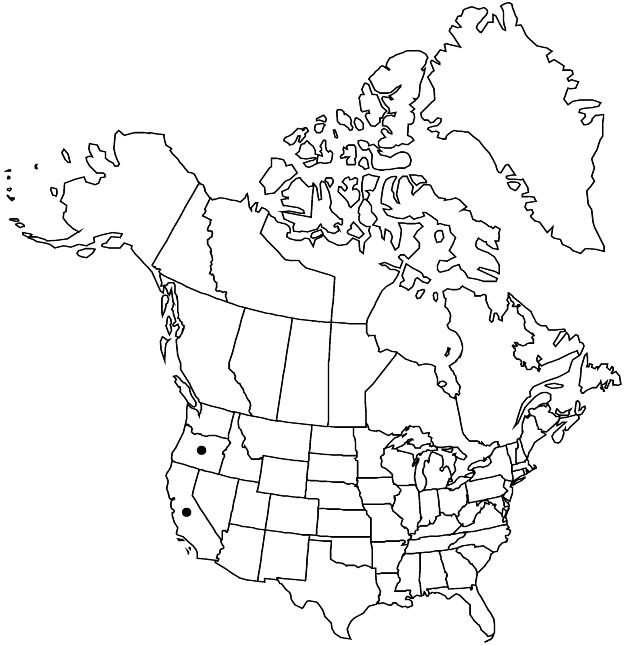Difference between revisions of "Rosa pisocarpa subsp. ahartii"
Madroño 55: 171, fig. 1. 2008.
imported>Volume Importer |
imported>Volume Importer |
||
| Line 51: | Line 51: | ||
|publication year=2008 | |publication year=2008 | ||
|special status=Endemic | |special status=Endemic | ||
| − | |source xml=https:// | + | |source xml=https://bitbucket.org/aafc-mbb/fna-data-curation/src/2e0870ddd59836b60bcf96646a41e87ea5a5943a/coarse_grained_fna_xml/V9/V9_163.xml |
|subfamily=Rosaceae subfam. Rosoideae | |subfamily=Rosaceae subfam. Rosoideae | ||
|tribe=Rosaceae tribe Roseae | |tribe=Rosaceae tribe Roseae | ||
Latest revision as of 22:54, 5 November 2020
Plants rarely forming thickets. Stems usually solitary or loosely clustered, (2–)4–14(–18) dm; infrastipular prickles 0 or 1(or 2), 2–5 mm. Leaves (5–)6–11(–13) cm; leaflets 5–7, most commonly 5, terminal blade 20–45(–60) mm. Inflorescences 1–3(–10+)-flowered. Flowers: sepal tip to 7 mm, abaxial surfaces usually eglandular, rarely stipitate-glandular; carpels 32–34. Hips subglobose to ovoid, 8–13 mm diam., gradually to abruptly narrowed to neck 2.5–3.5 mm diam. Achenes 5–20. 2n = 28.
Phenology: Flowering Jun–Aug.
Habitat: Streamsides, meadow margins, roadsides in woodlands, seasonally moist areas in openings of midmontane forests
Elevation: 100–1700 m
Discussion
Subspecies ahartii comprises populations from the northern Sierra Nevada and southern Cascade Range (B. Ertter and W. H. Lewis 2008). Stems tend to have relatively few (or no) prickles, relatively large ovate leaves, and relatively few flowers.
Selected References
None.
